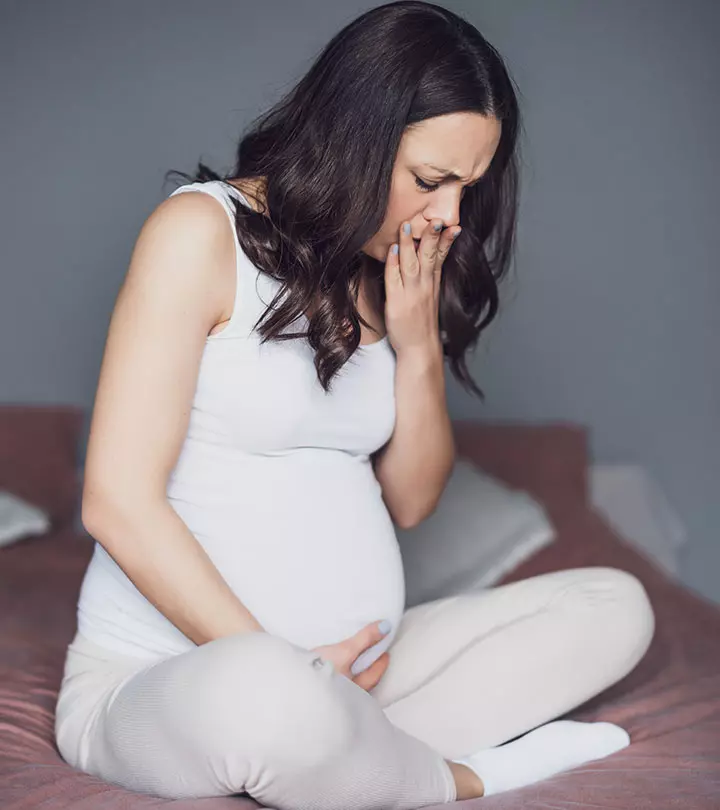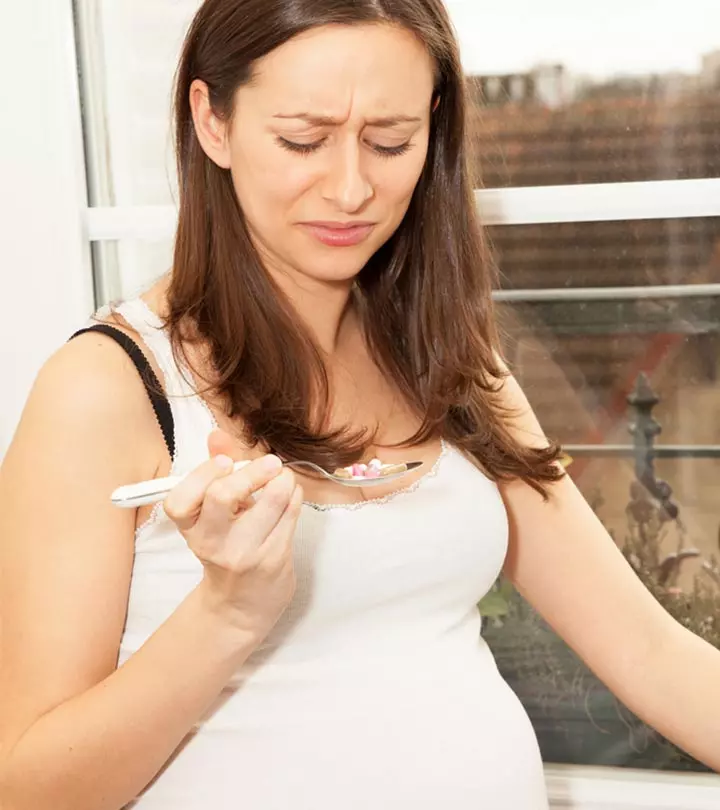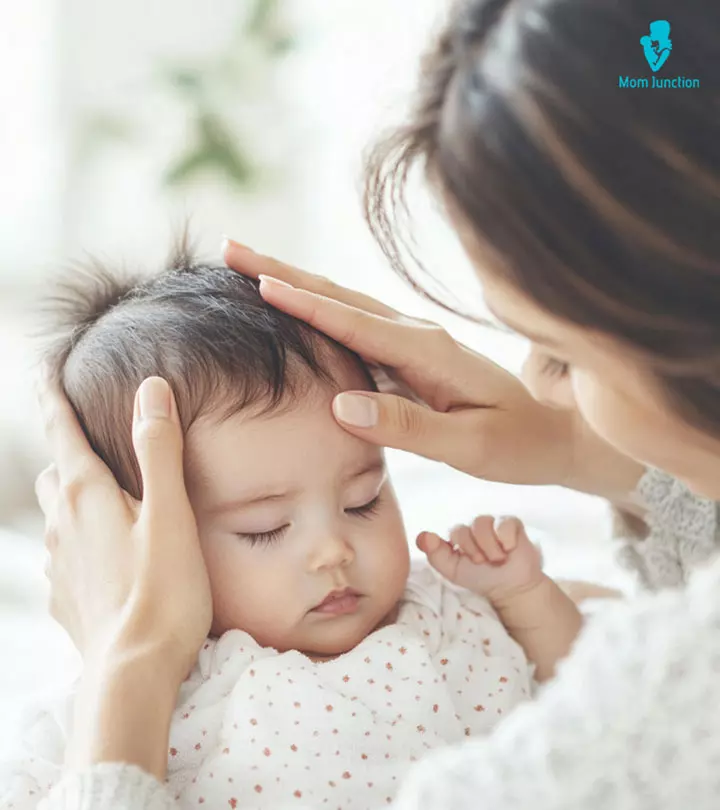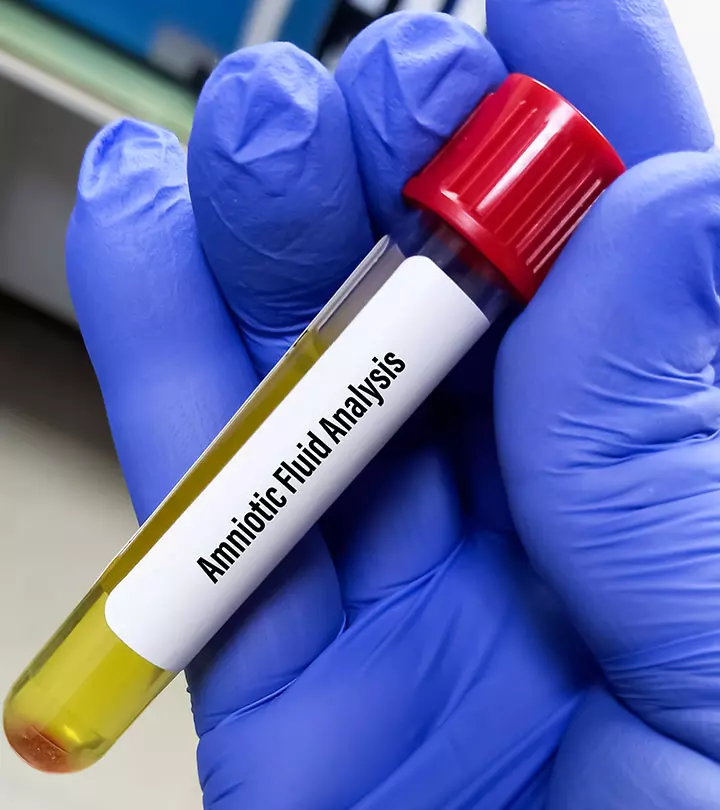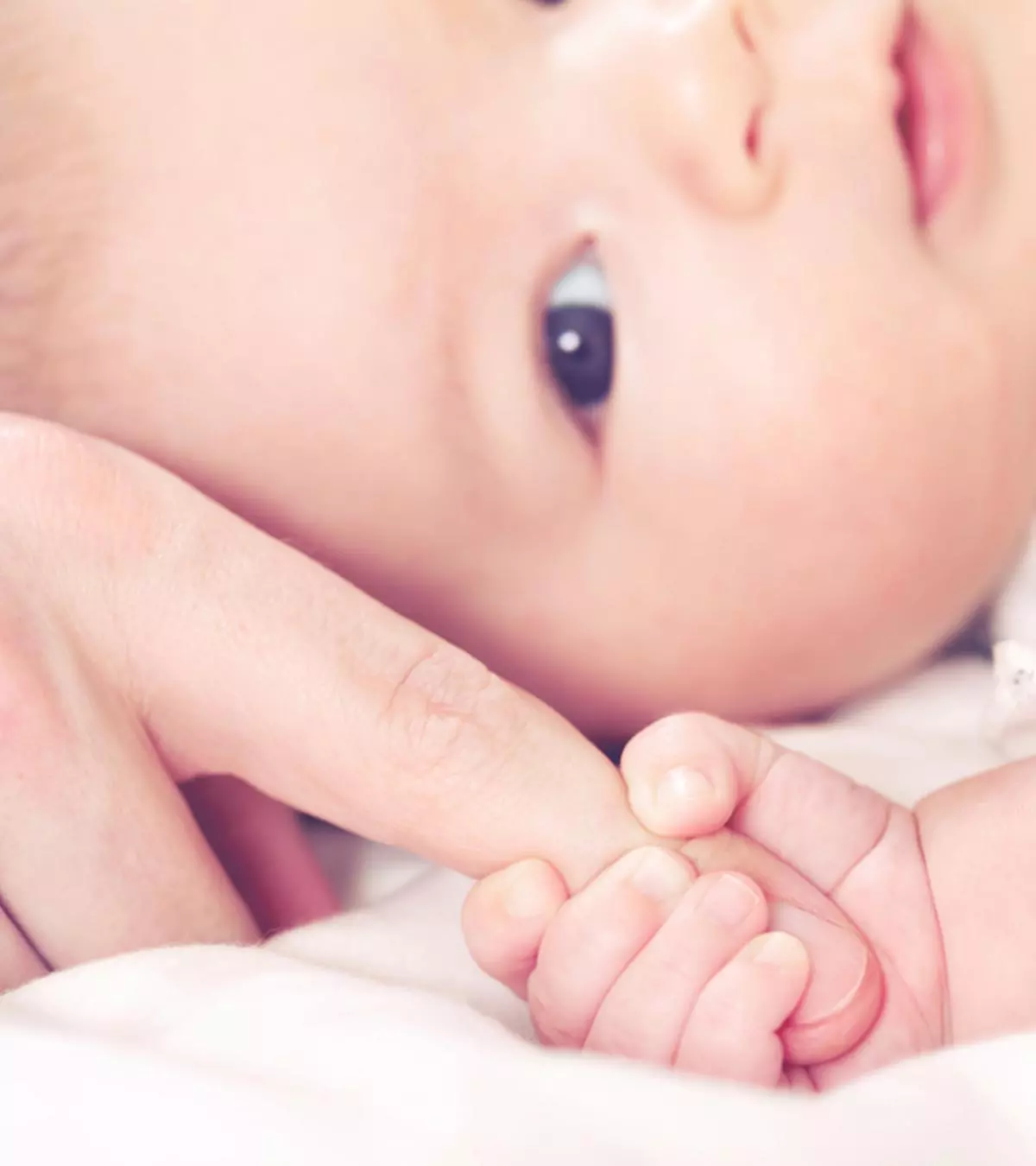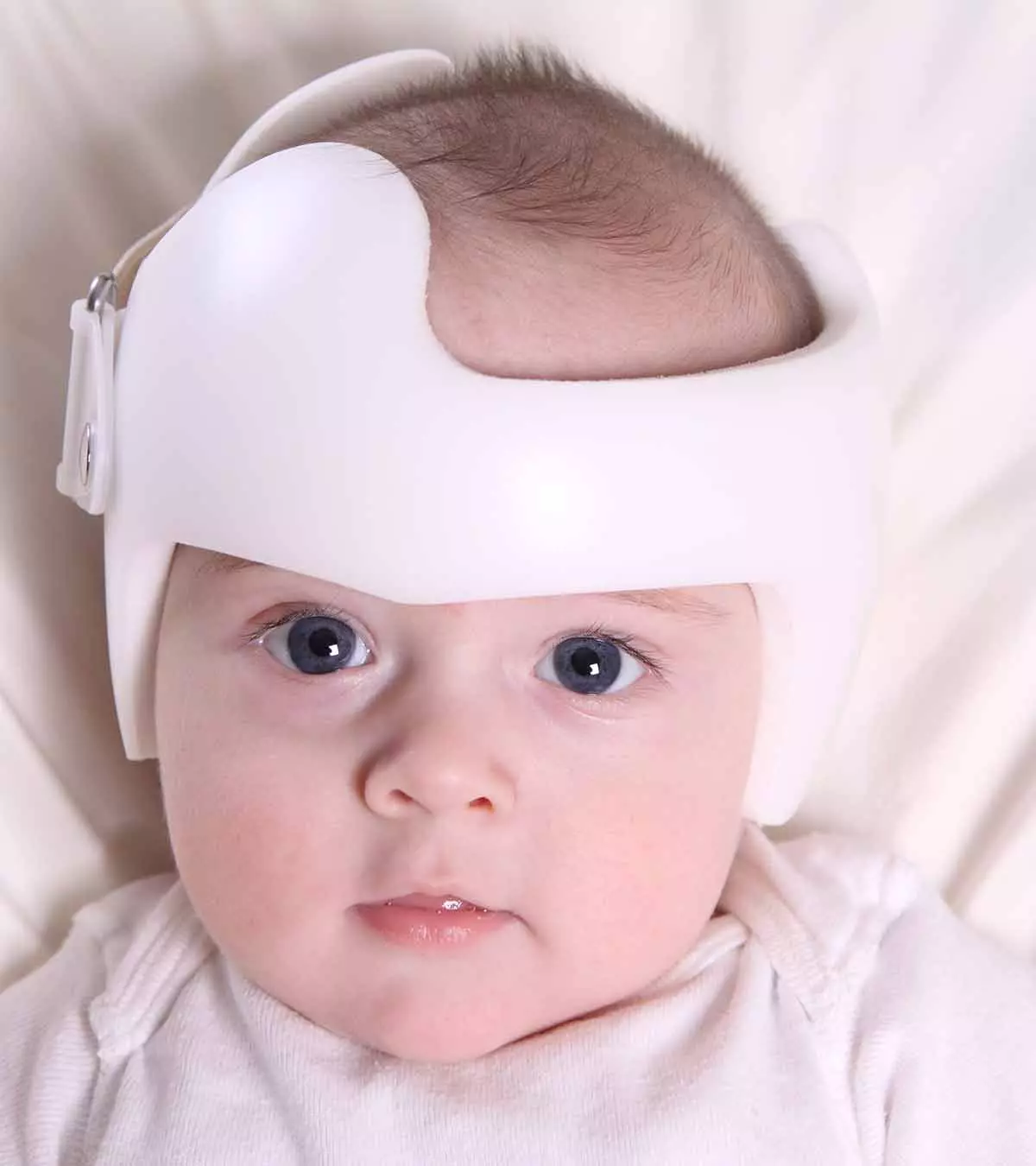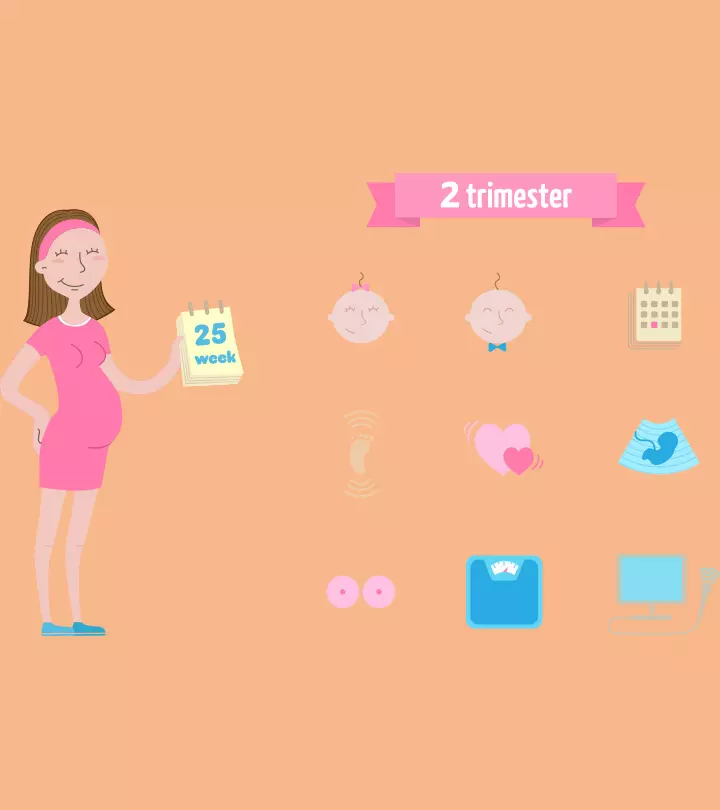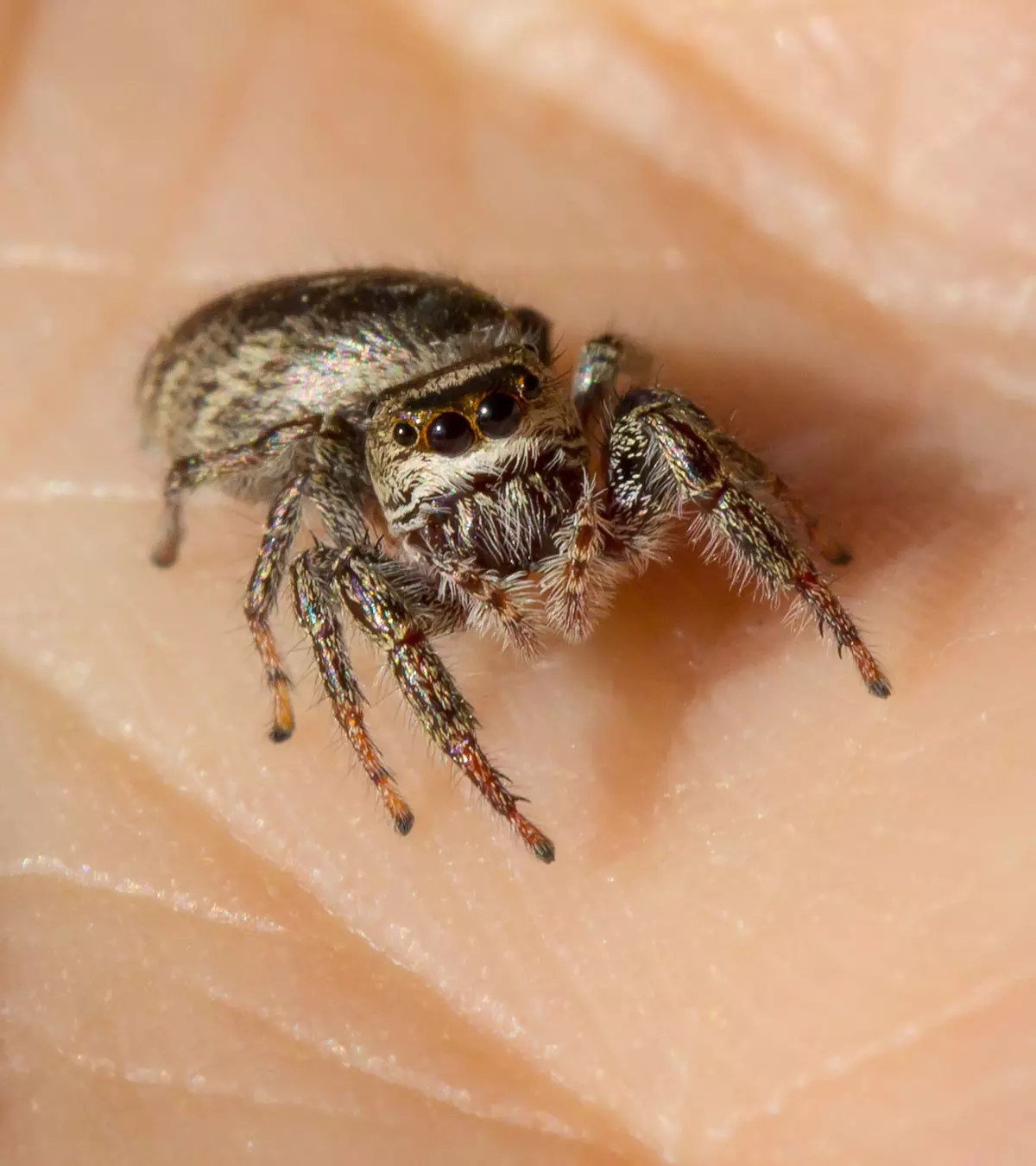
Image: Shutterstock
For humans, getting bitten by a spider may lead to allergies, lesions, pus formation, and scars. However, what happens when one experiences a spider bite when pregnant? While pregnant, a spider bite may cause pregnancy complications for both the mother and the baby, and the mother may experience the expected symptoms on a larger scale. Continue reading this post to know about the identification, symptoms, treatment, and prevention of spider bites in pregnancy.

Key Pointers
- Most spider bites are not a concern, but some spiders are venomous and can harm pregnant women and developing fetuses.
- Spider bites can cause a burning sensation, itching, rash, muscle aches, headaches, excessive sweating, and tremors or nausea.
- Identifying the type and severity of spider bites is important to determine the appropriate course of treatment.
- Treatment for spider bites typically involves a cold pack, bandage, or prescription pain relievers.
- Wearing long-sleeved clothing, disposing of spiders, and using insect repellents can help prevent spider bites.
Are Spider Bites Dangerous During Pregnancy?
Most spider bites are likely to be harmless. Some spider bites such as brown recluse or black widow could lead to serious illnesses (such as anaphylactic shockiA severe reaction to an allergy may be potentially fatal. ) or death.
This is regardless of pregnancy and may happen with anyone. If possible, try spider identification to spot the spider that has bit you to go for the right treatment (1).
 Quick tip
Quick tipIdentifying Spider Bites
Certain venomous arachnids that are responsible for causing bites are discussed below (2).
Widow spiders: They do not come out unless evoked. They are usually present in quiet, undisturbed, or dark places such as basements and closets. Out of five widow spider species, the bites of three black widow spiders are likely to cause severe poisoning. You might recognize them with their reddish-orange ‘hourglass’ shape on their belly.
According to the US Centers for Disease Control And Prevention (US CDC), widow spiders are commonly found in the southern and western United States and live in undisturbed areas such as woodpiles, eaves, fences, and areas with accumulated debris (3).
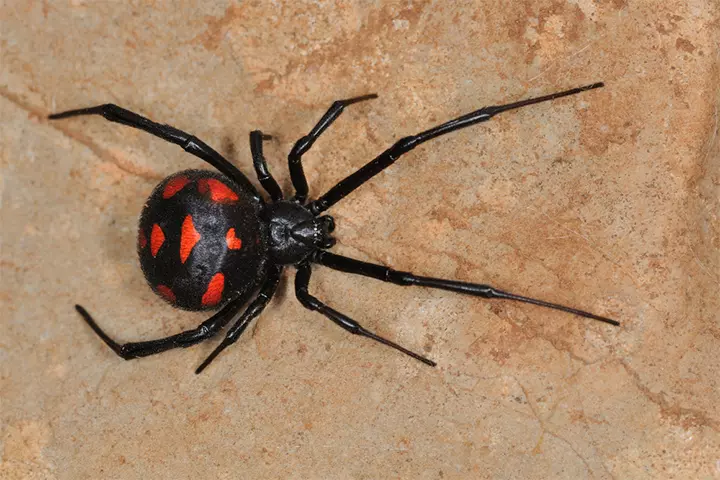
Recluse spiders: They are also found in quiet and dark areas similar to the black widows but usually come during the night. There are about 12 species out of which only 50% may cause bites. You might recognize them with their fiddle/violin-shaped markings on the upper body. Some other poisonous recluse spiders could be orange, pale brown, reddish-brown, or gray in color. The US CDC states that recluse spiders can be commonly found in the midwestern and southern United States, in secluded, dry, or sheltered areas or in dark closets, shoes, or attics (3).
 Caution
Caution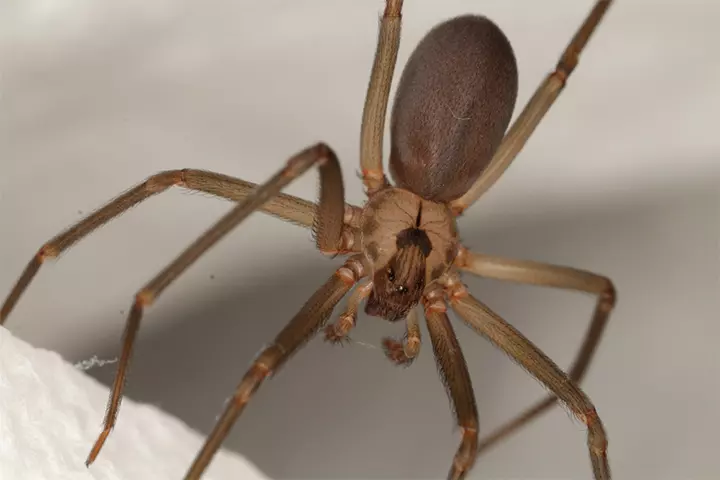
Symptoms Of Spider Bites During Pregnancy
Signs and symptoms of spider bites are quite apparent. Find below some prominent symptoms of a spider bite that might develop while pregnant (4) (5).
- Mild pain
- Burning sensation
- Itching
- Rash
- Abdominal cramps

What To Do If You Suspect A Spider Bite?
Obstetrician and gynecologist Dr. Shashwat Jani recommends, “If you suspect a spider bite, remain calm and clean the area with soap and water. A cold compress reduces swelling, and elevating the affected area may provide relief. Seek medical advice if you notice severe pain, swelling, or redness, develop breathing difficulties, abdominal pain, or fever, or if the bite becomes infected or shows signs of necrosis.”
If you suspect a spider has bitten you, taking immediate action is important. Follow these steps to assess the situation and ensure proper care (3) (6):
- Stay calm and assess the location of a spider bite.
- Look for typical signs such as redness, swelling, and itching.
- If possible, assess the spider’s appearance to assist in diagnosis.
- Clean the affected area with warm water and soap, and pat dry.
- Apply cold compressions around the surrounding area.
- Keep the affected area elevated to reduce swelling.
- Avoid scratching the affected area, nor apply any creams or lotions without a doctor’s consultation.
- Refrain from touching the bite, and do not try to remove venom.
- Monitor your symptoms closely, including their severity.
- Even if your symptoms are mild or none, inform your healthcare provider to ensure appropriate care.
If you experience these symptoms from a spider bite when pregnant, seek prompt medical attention (7) (4):
- Bitten by a venomous spider, such as a widow or recluse spider
- Abdominal pain, nausea, and vomiting
- Headaches, droopy eyes, and muscle stiffening
- A growing wound at the site
- Trouble breathing
- Swallowing difficulties
- Racing heartbeat
- Soreness of the affected area is increasing
- Redness and itchy red streaks around the affected area
- A wound that turns purple or dark blue
Treating Spider Bites In Pregnancy
Early treatment may help mitigate the symptoms and after-effects of a spider bite when pregnant.
So, you need to seek antivenom medications and treat spider bites as soon as you discover it. Here are some effective prenatal care treatments that may help you alleviate the symptoms of spider bites during pregnancy.
1. Apply cold packs
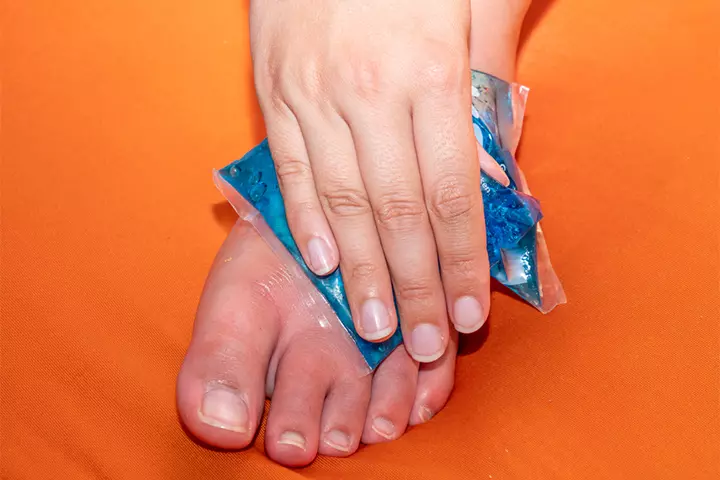
Clean the affected skin with water and mild soap. Then apply cold packs to the bitten area to mitigate the inflammation and pain resulting due to the bite. A cold compress may provide you relief from pain significantly (8).
2. Use bandage
Pressure immobilization bandage may help in treating a big black spider bite. You need to bandage the area of your body, such as your leg or arm firmly, and stay calm before seeking medical treatment (9). Also, if the spider has bitten your hand or leg then elevate your hand or leg.
3. Take over-the-counter medicine
Having over-the-counter pain relievers, such as paracetamol, could also help you get rid of pain resulting from the spider bite. It is good to have a word with your doctor before taking a powerful pain reliever while expecting (8) (9).
 Quick tip
Quick tipPreventing Spider Bites During Pregnancy
It is always better to prevent toxin exposure from harmful insect bites during pregnancy than treating them later. Here are some prevention tips to safeguard your pregnancy from the adverse effects of spider bites (1) (10).
- Wear long-sleeve protective clothing.
- Use effective insect repellents, such as Picaridin or DEET, on your footwear and clothing.

Frequently Asked Questions
1. Are spiders attracted to pregnant women?
There is no research or speculation that states about spiders getting attracted to pregnant women.
2. Can a spider bite cause a miscarriage?
Spiders have a substance called venom or poison that may cause venomous bites (toxic) and may increase the risk of pregnancy loss though uncommon (10).
3. How long will my spider bite last?
Infographic: How To Protect A Pregnant Woman From Spider Bites?
While not all spiders are dangerous, some have venom and can be a concern for pregnant women if bitten. However, with simple precautions, you can protect yourself and your baby from the harmful effect of spider bites. The infographic below includes some effective ways to prevent spider bites during pregnancy. Take a look!
Some thing wrong with infographic shortcode. please verify shortcode syntax
Illustration: Spider Bite During Pregnancy: Causes Safety And Treatment
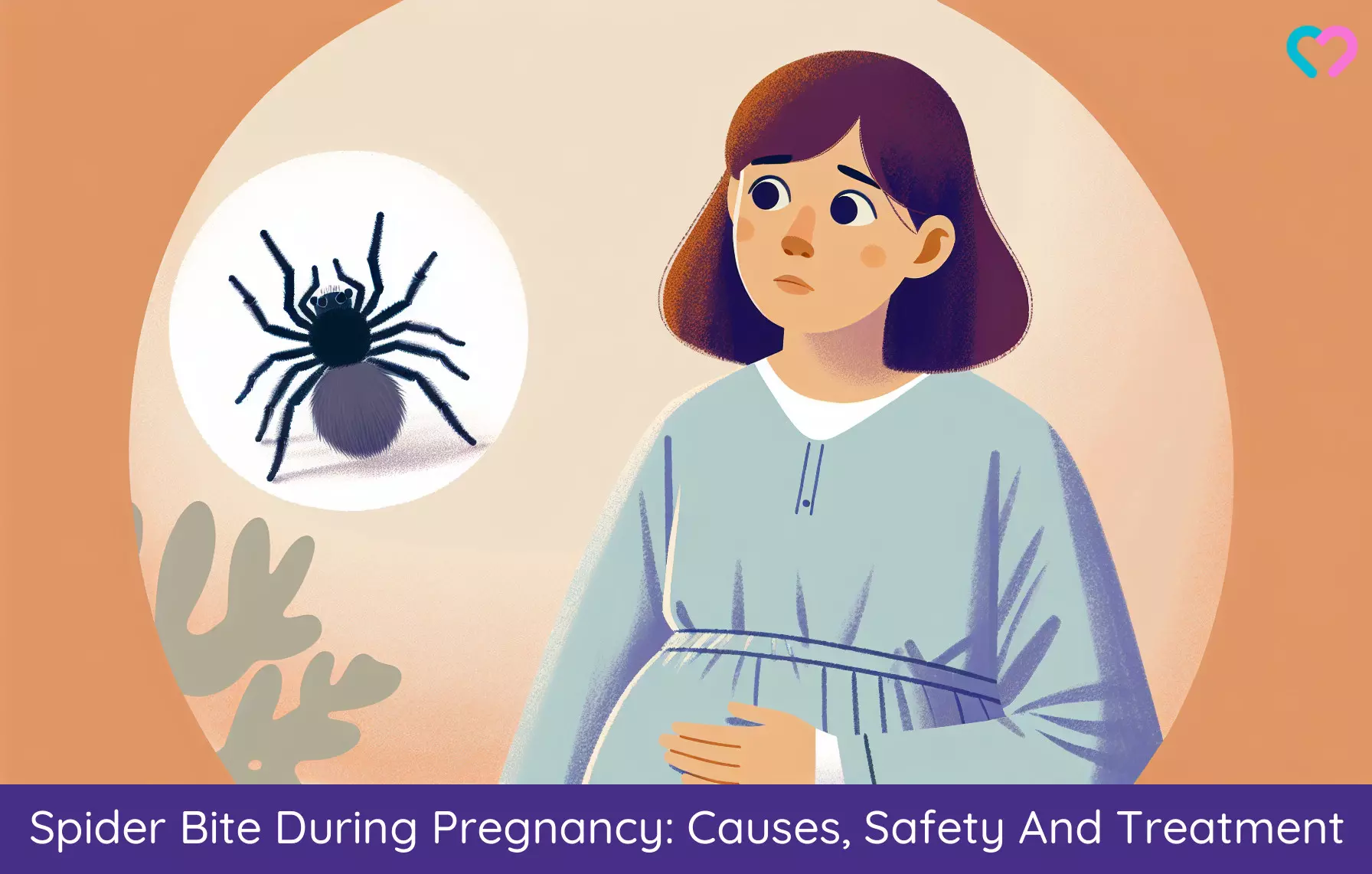
Image: Stable Diffusion/MomJunction Design Team
References
1. Insect bites and stings; U.S. Department of Health and Human Services National Institutes of Health (2017)
2. When Poisonous Spiders Bite; University of Rochester Medical Center
3. Venomous Spiders at Work; CDC
4. Spider Bites; Cleveland Clinic
5. Spider Bites; American Red Cross
6. When Poisonous Spiders Bite; John Hopkins
7. Spider bites; MayoClinic
8. Spider Bites; U.S. Department of Health and Human Services National Institutes of Health
9. Management of Snake Bite Ministry of Health and Family Welfare
10. Don’t Let the Bugs Bite! — Tips for Bug Bite Prevention & Treatment During Pregnancy; Lamaze International
11. Spider Bites: Symptoms, Signs & Spider Bite Treatment; Pestworld.org
12. Spider Bites Highly Unlikely to Cause Bacterial Infections, Study Finds; Entomologytoday.org
Community Experiences
Join the conversation and become a part of our nurturing community! Share your stories, experiences, and insights to connect with fellow parents.
Read full bio of Dr. Mamta Sahu
- Dr. Shashwat Jani is a consultant obstetrician & gynecologist in Smt. N.H.L. Municipal Medical College, Ahmedabad. He has 14 years of experience with a special interest in high-risk pregnancy, infertility, and endoscopy.
 Dr. Shashwat Jani is a consultant obstetrician & gynecologist in Smt. N.H.L. Municipal Medical College, Ahmedabad. He has 14 years of experience with a special interest in high-risk pregnancy, infertility, and endoscopy.
Dr. Shashwat Jani is a consultant obstetrician & gynecologist in Smt. N.H.L. Municipal Medical College, Ahmedabad. He has 14 years of experience with a special interest in high-risk pregnancy, infertility, and endoscopy.
Read full bio of Rebecca Malachi
Read full bio of Swati Patwal
Read full bio of Reshmi Das






